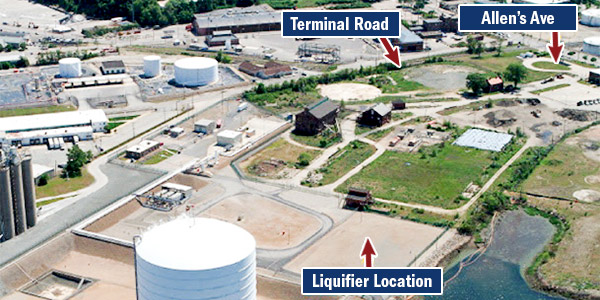By Rich Heidorn Jr.
FERC on Wednesday approved National Grid’s request to add liquefaction facilities at its 600,000-barrel Fields Point LNG storage facility in Providence, R.I.
Customers currently truck LNG to the Fields Point facility for storage, with National Grid redelivering gas via truck or through use of Narragansett Electric’s distribution pipelines and Algonquin Gas Transmission’s interstate pipeline. “The proposed project would effectively reverse this flow by enabling Algonquin to transport gas that Narragansett Electric would deliver to Fields Point to be liquefied and stored,” the commission said (CP16-121).
National Grid said it proposed the liquefaction facilities at the request of Narragansett and a second customer, Boston Gas, which were seeking to diversify their supply sources. It will have a capacity of 20 MMcfd.
Narragansett will provide a dedicated 13-MW, 34.5-kV electric service to power the facility.
Opponents of the project disputed the need for it, saying gas trucked to Fields Point have met peak day demands. But the commission said it was persuaded by storage customers’ complaints that they have had trouble obtaining enough LNG supplies.
Commissioners Cheryl LaFleur and Richard Glick joined in the approval but wrote a concurring statement to reiterate their position that the environmental review of such projects should include greenhouse gas emissions.
“We agree with today’s finding that the liquefaction facility will not have a significant effect on the environment, particularly given the limited GHG emissions associated with the project,” they wrote. “However, we disagree with the language in the environmental assessment that dismisses the social cost of carbon as a useful tool to inform the environmental review, stating the social cost of carbon method ‘cannot meaningfully inform the commission’s decision whether and how to authorize a proposed project under the [Natural Gas Act].’ We believe the social cost of carbon provides a meaningful and informative approach for an agency to consider how its actions contribute to the harm caused by climate change.”





